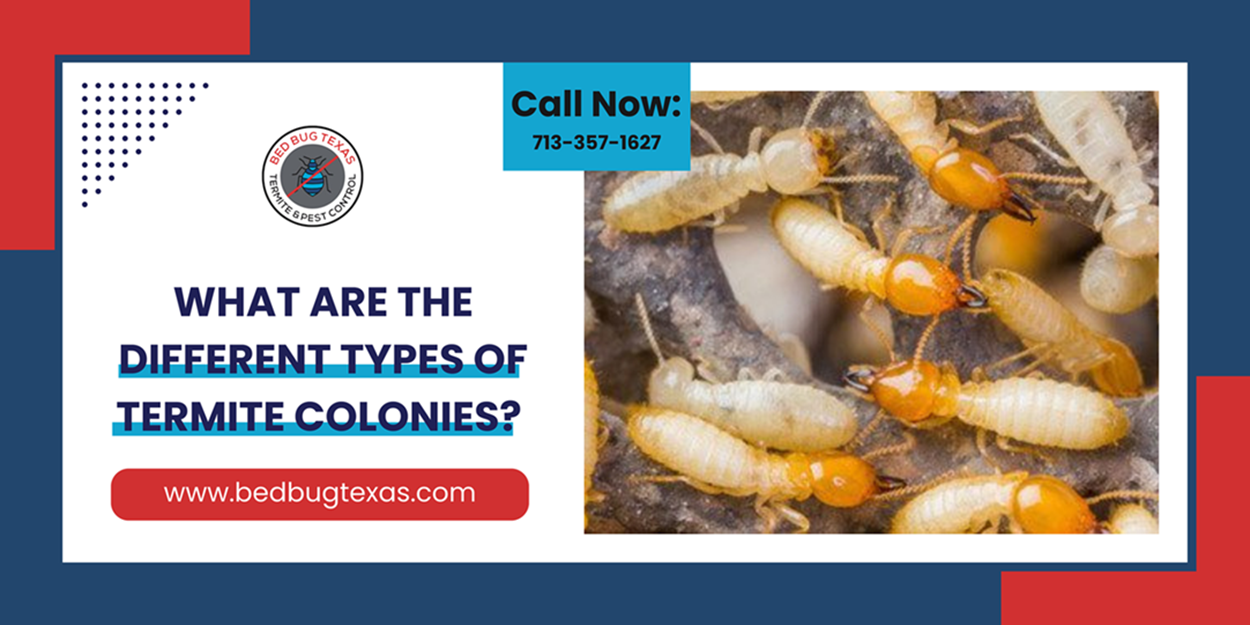
Termites are a common issue for homeowners, and understanding the structure of a termite becomes important while selecting suitable termite control services to safeguard your property effectively. A termite colony is more complex than it seems, as different types of termites work together in specific roles, each contributing to the colony’s success and growth.
These Social insects(termites) reside in structured colonies where every member has a designated role to ensure the colonies’ success and growth. If you’re thinking about hiring a professional termite treatment or pest control services it’s beneficial to gain insights into termite colonies to make an informed decision, on the best course of action.
Types of Termite Colonies and Roles Within:
A termite colony is typically composed of various castes that perform essential functions: workers, soldiers, and reproductive termites (also known as swarmers or alates). Here’s a closer look at each caste:
Worker Termites
These termites are responsible for foraging, feeding the colony, and building tunnels. They are often the most numerous in the colony & perform vital duties to maintain the nest. If you observe structural damage then worker termites are usually the culprits.
Soldier Termites
With strong jaws or specialized chemical defenses, soldier termites protect the colony from threats, particularly ants. While they don’t cause damage to structures, their presence indicates an active colony nearby which makes prevention termite treatment crucial.
Reproductive Termites (Swarmers)
The reproductive termites are responsible for creating new colonies. Swarmers are often seen during mating season, flying out to start colonies in new locations. Different types of termites have distinct swarming patterns, which can help identify the species and the need for professional pest control services.
Queen and King Termites
The queen and king are responsible for reproduction, which ensures the colony’s growth. The queen, in particular, can produce thousands of eggs annually, contributing to how many termites are in a colony.
Different Species of Termites:
While the basic structure of termite colonies remains consistent, there are different species of termites with unique behaviors:
Subterranean Termites: Common in Texas and responsible for most structural damage, they build large underground colonies.
- Drywood Termites: These termites inhabit wood directly, avoiding soil. They tend to create smaller colonies but can still cause significant damage.
- Formosan Termites: Known for large colonies with millions of individuals, Formosan termites are aggressive and difficult to control without professional termite treatment.
How Many Termites Are in a Colony?
Colony size varies by species. Small colonies may have just a few thousand termites, while large colonies can number in the millions. Understanding the colony’s size and type helps determine the best types of termite treatment.
FAQ:
Are there different types of termite treatments for different termite species?
Yes, termite control methods vary based on the type of termite and the structure of the colony. Professional services assess this before recommending treatments.
How many termites are typically found in a colony?
Colony sizes can vary greatly, with some colonies containing thousands or even millions of termites, depending on the species and environmental conditions.
How can I prevent termites from entering my home?
Regular inspections, reducing moisture, and removing wood debris are essential steps. For complete protection, consider professional pest control services.
In summary, identifying the different types of termites and understanding their colonies is important to protect your home. Whether you need simple termite prevention or comprehensive Termite Control Services, it’s wise to consult with professionals who know all types of termites and their specific threats.
Still in doubt or need comprehensive termite solutions for your property? Visit Bed Bug Texas or call 713-357-1627 and get professional pest control services tailored to your needs.

